ABOUT THE AUTHOR
Michael R. Bradley received a PhD in United States History from Vanderbilt University in 1970. He taught at Motlow College in Tennessee from 1970 to 2006, when he retired. He continues to be active in writing and lecturing. Dr. Bradley is the author of twenty-two books dealing with U.S. history, including It Happened in the Civil War , Civil War Myths and Legends , It Happened in the Great Smokies , and Death in the Great Smoky Mountains , all published by Globe Pequot Press. He is currently at work on Great Smokies Myths and Legends to be published by Globe Pequot.

IT HAPPENED IN
THE REVOLUTIONARY WAR

An imprint of The Rowman & Littlefield Publishing Group, Inc.
4501 Forbes Blvd., Ste. 200
Lanham, MD 20706
www.rowman.com
Distributed by NATIONAL BOOK NETWORK
Copyright 2018 by Rowman & Littlefield
All rights reserved. No part of this book may be reproduced in any form or by any electronic or mechanical means, including information storage and retrieval systems, without written permission from the publisher, except by a reviewer who may quote passages in a review.
British Library Cataloguing in Publication Information available
Library of Congress Cataloging-in-Publication Data available
ISBN 978-1-4930-3722-3 (paperback)
ISBN 978-1-4930-3723-0 (e-book)
 The paper used in this publication meets the minimum requirements of American National Standard for Information SciencesPermanence of Paper for Printed Library Materials, ANSI/NISO Z39.48-1992
The paper used in this publication meets the minimum requirements of American National Standard for Information SciencesPermanence of Paper for Printed Library Materials, ANSI/NISO Z39.48-1992
Printed in the United States of America
I honor William Bradley, who fought and was
wounded at Kings Mountain. I am glad the wound
was not fatal, or I would not be here to write this.
PREFACE
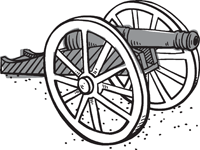
There was once a time when giants walked abroad in this land. All of us who are citizens of the United States, and everyone anywhere who loves liberty, are their descendants.
They were not perfect, those men and women of the Revolutionary War era. Some of them were fearful, some were self-seeking, some wavered in their devotion to the cause of freedom. But they produced a nation that has become a beacon set on a hill, beckoning to all who want to walk toward freedom. The nation those men and women produced has not been, and is not, a perfect nation, but millions of Americans would prefer to awake no place else.
In this book you will meet some of the people of that Revolutionary age: men, women, even children, of all races, some of whom measured up to the challenge of birthing a nation and some who failed in the attempt to do their share. We can take pride in those who were patriots, and we can learn even from those who failed.
In this book the word American is not often used. During the Revolutionary War, American was used to designate any resident of any of the British colonies in North America, including Canada and the Caribbean. American referred to a place of residence, not citizenship. When the war began, everyone in the colonies was British so far as citizenship was concerned. A new meaning for the word American had to be invented. While our ancestors were inventing that meaning, they called themselves Patriots and the army the Continentals. The British called us Rebels and other things totally unfit for print. Only gradually did American come to denote a citizen of the United States and a certain set of political ideals.
The original thirteen states were not strongly united either. At the same time that they declared their independence from Great Britain, the Continental Congress drew up, and submitted to the states for ratification, a document called the Articles of Confederation. Under the terms of this agreement, each state retained its sovereignty, and practically no power was given to the central government. Our original national government was a states rights confederacy. As a result of this form of government, the treaty ending the Revolutionary War was not negotiated between Great Britain and the United States of America but between Britain and thirteen sovereign entities, each listed in the treaty by name. Not until 1789 did we alter this arrangement between the states and national government by writing the Constitution of the United States of America, one purpose of which was to create a more perfect union.
Whether your ancestors helped found Jamestown, stubbed their toe on Plymouth Rock, came ashore on Ellis Island, or arrived just the other day, the men and women of this book are your political ancestors. They helped give us what we have as Americans.
REVOLUTIONARY
WAR TIMELINE
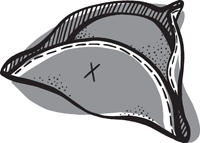
| 1754 | Albany Conference takes place. Colonies reject a proposal by Benjamin Franklin suggesting that all colonies cooperate in self-defense against the French and Indians. |
| 17541761 | French and Indian War, also called the Seven Years War, causes havoc for the colonists. French and Indians attack the colonial frontier. Most of the defense of the colonies is provided by the colonial militia. |
| 17621763 | Chief Pontiac leads what will become known as Pontiacs Rebellion, causing the British government to forbid white settlement west of the Appalachian Mountains |
| 1764 | Parliament passes the Sugar Act, placing a tax on molasses, a commodity vital to New England. The New England colonies distill the molasses into the rum that is taken to Africa to be traded for slaves, who are in turn taken to the Caribbean to be traded for more molasses. |
| 1765 | Stamp Act requires a revenue stamp on all sorts of documents, thus creating yet more taxes. |
| 1766 | In the face of colonial opposition, the British Parliament repeals the Sugar and Stamp Acts. |
| 1767 | Parliament imposes the Townshend Duties, a tax on paint, paper, lead, glass, and tea. This tax is paid in Britain by the exporter, but the colonists know they will have the tax passed on to them in the form of higher prices. |
| 1768 | Violent antitax protests break out in Boston and other towns. Troops are sent to Boston to maintain order. |
| 1770 | The Boston Massacre occurs when British troops fire on an unruly crowd. Four citizens of Boston are killed. |
| 1771 | Troops are withdrawn from Boston, and the Town-shend Duties are repealed, except for the tax on tea. |
| 1773 | A bumper crop of tea makes that item a bargain even with the tax. The Sons of Liberty in Boston dump tea overboard in what becomes known as the Boston Tea Party. |
Parliament passes the Intolerable Acts to punish Boston. |
| 1774 | British troops return to Boston to maintain order. |
| 1775 | War officially begins on April 19 at Lexington and Concord, Massachusetts; Minutemen besiege
Boston. |
Battle of Bunker Hill takes place. |




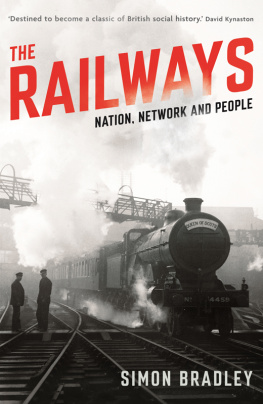
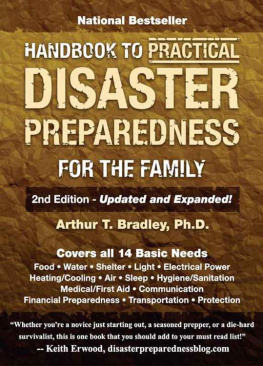

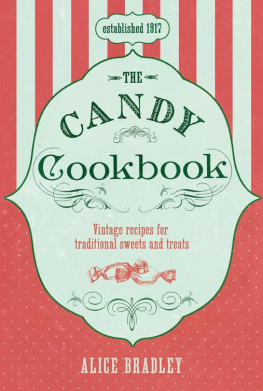
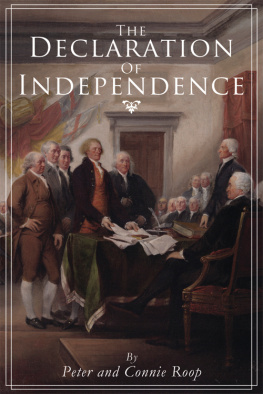


 The paper used in this publication meets the minimum requirements of American National Standard for Information SciencesPermanence of Paper for Printed Library Materials, ANSI/NISO Z39.48-1992
The paper used in this publication meets the minimum requirements of American National Standard for Information SciencesPermanence of Paper for Printed Library Materials, ANSI/NISO Z39.48-1992
